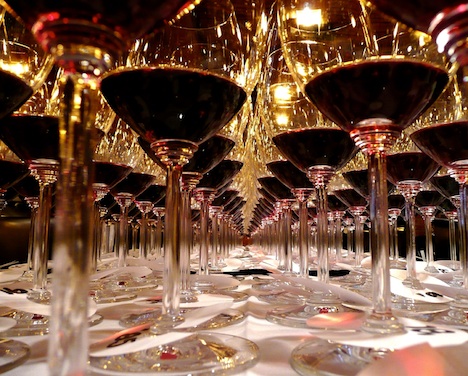It’s a very Canadian trait that we rarely confer praise on our own until validity is confirmed from the outside. But the fact that British wine expert Steven Spurrier is taking time to visit the Okanagan and Vancouver does mark another major milestone in the still young history of the industry.
I’m reminded of the first time this sort of event happened, when Spurrier’s compatriot, Hugh Johnson visited the Okanagan, in the early 1990s. Johnson stoically tasted his way through scores of wines in private, before emerging to give his comments.
As the assembled crowd looked on, waiting with bated breath, Johnson pronounced:
“Next time maybe you should try using grapes!” …. (Or words to that effect; and proceeded graciously to find at least a few positive things to say.)
I’m sure at some point during the week, some wag somewhere will ask: ‘What does it really matter what some chap from the other side of the pond thinks about BC wines?’
Well, the answer is: ‘plenty.’ Hugh Johnson’s long ago visit drew attention to the valley; and eventually led to forays by the likes of Jancis Robinson and several others, including, more recently, Planet Riesling author (Munich based) Stuart Piggott.
The bottom line is that London remains the base of the international wine media. And, if you want to play in the big leagues (as the BC Industry clearly does, and should) then Mr. Spurrier’s visit is beyond worthwhile.
Here’s more, as in this weekend’s North Shore News…
With B.C.’s earliest ever harvest already under way (the first grapes were picked on August 12th), perhaps there’s no better backdrop for this week’s milestone tasting, which has been christened the Judgement of B.C..
Led by wine guru and educator D.J. Kearney, with celebrated British wine expert Steven Spurrier, this event (in which the panel will blind taste “12 BC wines and 12 “acknowledged global benchmarks.” promises to be significant.
A major force in the wine world, Spurrier is most widely known as the man who organized the 1976 “Judgement of Paris”, in which mainly French judges blind tasted top tier Chardonnays, First Growth Bordeaux and Cabernet Sauvignon wines from France and California. When all was done, the judges picked Californian wines as the best in each category. In doing so, they lent much needed credibility to the American wines, and effectively launched the California industry internationally.
At the time a leading wine merchant in Paris, and Bordeaux specialist, Spurrier (who Jancis Robinson says “ironically, could hardly be more pro-French wine”) originally thought the Californians had little chance. Source: Jancis Robinson.com
Robinson also suggests that Spurrier himself is a whole lot more interesting than the actual tasting and describes him as “the unsung hero of wine.” She points to his vast experience, calls him a “man of exceptional wine knowledge” (with “fingers in vinous pies in six countries”); and notes that he set up the highly regarded Christie’s Wine Course. He’s also published three authoritative books on wine.
 The format has since been replicated scores of times around the world, as various wine regions seek to position themselves in comparison to top tier French wines.
The format has since been replicated scores of times around the world, as various wine regions seek to position themselves in comparison to top tier French wines.
The very nature of competitive judging demands a “winner” and, no doubt there’s a jingoistic element that will drive plenty of interest to see which B.C. wines can “knock off” international stars, as may or may not be the case.
However, as the organizing B.C. Wine Institute says: “The goal of this tasting is to honestly assess the current state of grape growing and winemaking in British Columbia in order to provide a clear perspective of the distinct characteristics of the Wines of British Columbia in relation to global standards…”
Above all, though, at the end of the day, beyond the results, my hunch is that everybody will be listening very closely to what Mr. Spurrier has to say. At least they should be.
It promises to be an interesting time.

Leave A Comment